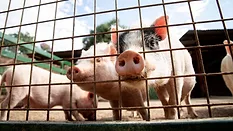
Microbiological
Microbiological contamination of food encompasses bacterial pathogens, such as Listeria monocytogenes, Escherichia coli (E.coli), Salmonella, Cronobacter, and many other pathogens that can contaminate food at any point during the supply chain, causing foodborne illness. This category also includes foodborne parasites.
Articles
More ArticlesPodcasts
More PodcastsNever miss the latest news and trends driving the food safety industry
eNewsletter | Website | eMagazine
JOIN TODAY!Copyright ©2025. All Rights Reserved BNP Media.
Design, CMS, Hosting & Web Development :: ePublishing



